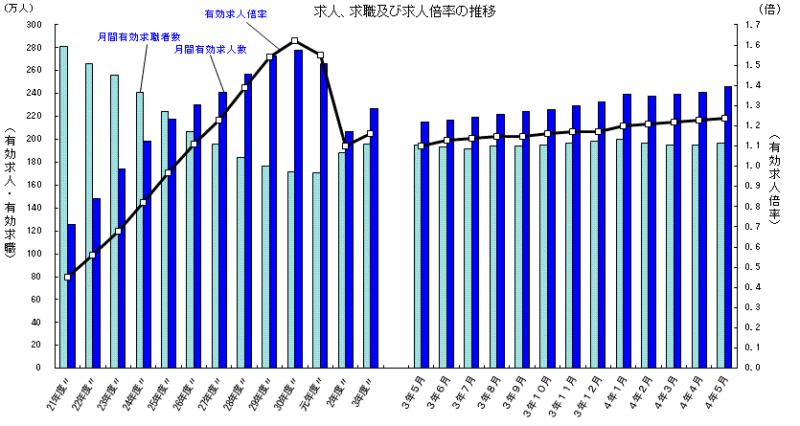Healthcare: a Recession-Proof Job Market in a Jobful Downturn?

Recessions, depressions, downturns: drops in economic activity have come in various forms, lengths and intensity over the years. But one consistent feature is that they have been accompanied by major job losses and corresponding rises in unemployment.
A global slowdown may be on the cards, and may already have begun. There are more than a few predictions out there for borderline-doomsday economic scenarios. However, this recession may turn out to buck the usual trend in that instead of widespread joblessness, it emerges as the first during which labour shortages persist. This is most likely to be the case where the shortfall of skilled personnel is already acute, such as in healthcare, IT and in high-skill, specialist positions across the board.
Contributing to making the situation different this time around in most mature economies is a perfect storm of retiring baby boomers, fewer young people entering the workforce due to decades of falling birth rates, pandemic-related reductions in cross-border worker mobility and significant skill mismatches hitting multiple sectors. In addition, millions of people have experienced long-Covid symptoms that have led them to take extended breaks from work or switch to less-demanding roles.
Still hiring, not firing
Many employers struggled to fill vacancies as economies opened up after the worst of the pandemic disruptions, finding that even the usually failsafe method of raising the offered salary often didn’t do the trick.
By late last year, there were 50 to 80 percent more unfilled jobs than before the pandemic in Australia, Canada, the UK and the US, according to the International Monetary Fund (IMF).
And as economic output showed signs of falling in the US in recent months, firms kept hiring and job vacancies kept growing. The Wall Street Journal’s Jon Hilsenrath in an article at the beginning of July dubbed this a ‘jobful downturn’, in contrast to the ‘jobless recoveries’ often seen at the end of recessions.
According to the Ministry of Health, Labour and Welfare of Japan, new job openings in May increased by 17.2% compared to the same month of the previous year.

Ministry of Health, Labour and Welfare of Japan, 2022
Recession-proof?
In addition to being one of the sectors that has already been experiencing shortages of personnel, healthcare has previously proven to be one of the more recession-proof industries. There are fairly obvious reasons for this: medical treatment is rarely the kind of discretionary spending that is easily cut back on or postponed, and a large proportion of costs are borne by public or private insurance. This should ensure that demand remains high for staff in a wide range of healthcare areas whatever direction the global economy ends up going in.
The need for more frontline medical personnel, in particular nurses, has attracted attention and made headlines around the world in the wake of the pandemic. But there are also numerous other positions, in treatment, testing, research and back-office support, which are proving difficult to fill.
A very particular set of skills
Regenerative medicine is one field that has demonstrated considerable potential in certain areas, including CAR-T treatments for cancer. This involves extracting the chimeric antigen receptor (CAR) T cells from a patient’s blood, modifying them to fight the cancer, and then reinjecting them. The field is in its nascent stages but there are expected to be dozens of new therapies approved in the coming years.
In January this year, Bristol-Myers Squibb (BMS) received approval in Japan for its Abecma CAR-T treatment of multiple myeloma, a blood cancer that attacks the immune system. This marks the second CAR-T Japan approval for BMS and more approvals are expected going forward.
But as a paper entitled ‘Assessing workforce needs for the emerging CAR-T cell therapy industry’ published in February’s Nature Biotechnology notes: “…development and, especially, manufacturing of these novel therapies is complicated and labour-intensive, which raises concerns that the lack of a skilled workforce may hinder growth of this field…” Those with the requisite skill sets however, are inevitably in high demand.
There is a similar situation in the emerging field of companion diagnostics (CDx) – testing for individual suitability to a medical treatment. Japan is beginning to see more approvals here too, with Chugai Pharmaceutical and Thermo Fisher Scientific cancer therapies getting the green light last year – but also it is experiencing a lack of qualified personnel.
Driven in part by shortages of staff, along with the shift impacting nearly every industry, healthcare is undergoing an acceleration of the digital transformation (DX) process. This naturally requires IT specialists, whose skills are in demand not only across the sector but also in the rest of the economy. The Ministry of Economy, Trade and Industry has forecast a shortfall of up to 450,000 ICT workers across all sectors in Japan by 2030. There are also shortages in Japan for other back-office support and administrative positions in healthcare.
Whether or not there is a full-blown global recession looming on the horizon – economists, analysts and pundits’ track-record of forecasting such events is less than stellar – the demand for personnel across healthcare and many other industries in Japan looks set to remain strong.
By: Gavin Blair
We are currently hiring for:
- • Senior Mgr, Safety Operations and Data Management
- • Senior Project Manager
- • Associate Director, Safety Scientist
- • Associate Director, Medical Lead Japan
- • Manager, Sponsor Oversight Lead
- • Senior Manager, GCP/PV-QA
- • Medical Operations Manager
- • Manager, Clinical Research Scientist
- • PV Scientist
- • Business Planning Manager
- • Market HRBP Japan EL&HC/ Group Function (Tokyo)
- • Project Manager SOD Scale Up, EL-OTG Process Design Semiconductor Materials
To find out more about hot roles in healthcare and elsewhere please contact us at +81-3-5962-5888 or email us at info@slate.co.jp
